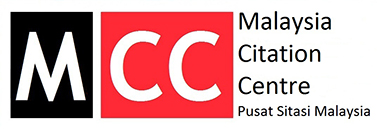INVESTIGATION ON CLOSE-LOOP WATER-COOLED PHOTOVOLTAIC MODULE: EFFECT OF WATER VOLUME ON THE TEMPERATURE PROFILE AND PERFORMANCE ENHANCEMENT OF THE MODULE
DOI:
https://doi.org/10.54554/jmet.2022.14.01.002Abstract
The volume of water in the water reservoir is one of the most important parameters involved in closed-loop water-cooled photovoltaic (PV) systems. However, there are no studies reported on this parameter. Therefore, in this paper, PV modules with different effective surface areas are cooled using different sets of water volumes in a closed-loop system to study the temperature reduction and performance enhancement of water-cooled PV modules. The experimental result indicated that for the 250-W water-cooled module, different sets of water volumes have a significant effect on the surface temperature reduction of the PV module and its performance compared to the 10-W and 30-W water-cooled modules. Hence, the preliminary data indicates that the volume of water affects the inlet temperature of the water, which subsequently affects the temperature reduction and performance enhancement of the water-cooled module in the closed-loop system. Besides, the inlet temperature of the water is also affected by the effective surface area of the water-cooled module.
Downloads
References
I.R.E Agency. (2020). Renewable Power Generation Costs in 2019. Available: https://www.irena.org/publications/2020/Jun/Renewable-Power-Costs-in-2019
S. Dubey, J.N. Sarvaiya, B. Seshadri. "Temperature dependent photovoltaic (PV) efficiency and its effect on PV production in the world - A review," Energy Procedia, vol. 33, pp. 311–321, 2013.
J. Zhang, H. Zhai, Z. Wu, Y. Wang, H. Xie, M. Zhang. "Enhanced performance of photovoltaic–thermoelectric coupling devices with thermal interface materials," Energy Reports, vol. 6, pp. 116–122, 2020.
P.K. Dash, N.C. Gupta. "Effect of Temperature on Power Output from Different Commercially available Photovoltaic Modules," J. Eng. Res. Appl, 2015.
C.Y. Mah, B.H. Lim, C.W. Wong, M.H. Tan, K.K. Chong, A.C. Lai. "Investigating the Performance Improvement of a Photovoltaic System in a Tropical Climate using Water Cooling Method," Energy Procedia, vol. 159, pp. 78–83, 2019.
F. Basrawi, Y.C. Leon, T.K. Ibrahim, M.H. Yusof, A.A. Razak, S.A. Sulaiman, T.Yamada. "Experimental Analysis on the Effect of Area of Surface Cooling for a Water-Cooled Photovoltaic," in MATEC Web Conf., 2018, vol. 225, pp. 1–6.
E.E.D. Yong, S.M.R. Fulge, J.E.R Lisaca, D.M. Olarte, J.M. Rosario. "Development of a water-based PV cooling system," in 2018 IEEE 10th Int. Conf. Humanoid, Nanotechnology, Inf. Technol. Commun. Control. Environ. Manag. HNICEM 2018 , 2019, pp. 1–7.
R. Hosseini, N. Hosseini, H. Khorasanizadeh. "An Experimental Study of Combining a Photovoltaic System with a Heating System," presented at Proc. World Renew. Energy Congr. – Sweden, Linköping, Sweden 57, 2011.
L.H. Yang, J.D. Liang, C.Y. Tseng, S.L. Chen. "Improvements on the Efficiency of the Photovoltaic Panel by Integrating a Spray Cooling System with Shallow Geothermal Energy Heat Exchanger," in Conference: ISES EuroSun 2018 Conference – 12th International Conference on Solar Energy for Buildings and Industry, 2019, pp. 1–11.
S. Odeh, M. Behnia. "Improving photovoltaic module efficiency using water cooling," Heat Transf. Eng., vol. 30, pp. 499–505, 2009.
L.W. Zhe, M.I. Yusoff, A.A Razak, M.I. Misrun, S. Ibrahim, M.I. Fahmi, A.S. Rosmi. "Effect of water cooling temperature on photovoltaic panel performance by using computational fluid dynamics (CFD)," J. Adv. Res. Fluid Mech. Therm. Sci. , vol. 56, pp. 133–146, 2019.
Downloads
Published
How to Cite
Issue
Section
License
JMET Copyright Principles
JMET seeks to retain copyright of the articles it publishes, without the authors giving up their right to use their own material.
Originality
The manuscript is neither been published before, nor is it under consideration for publication in any other journals. It contains no matter that is scandalous, obscene, libelous or otherwise contrary to law.
Terms of Acceptance
When the article is accepted for publication, the authors shall hereby agree to transfer to the Journal of Mechanical Engineering and Technology, all rights, including those pertaining to electronic forms and transmissions, under existing copyright laws, except for the following, which the author(s) specifically retain(s):
All proprietary right other than copyright, such as patent rights.
- The right to make further copies of all or part of the published article for my/our use in classroom teaching.
- The right to reuse all or part of this material in a compilation of my/our own works or in a textbook of which I/we am/are the author(s).
- The right to make copies of the published work for internal distribution within the institution that employs me/us.
The authors agree that copies made under these circumstances will continue to carry the copyright notice that appeared in the original published work. The authors agree to inform any co-authors, if any, of the above terms. The authors certify that they have obtained written permission for the use of text, tables, and/or illustrations from any copyrighted source(s), and they agree to supply such written permission(s) to Journal of Mechanical Engineering and Technology upon request.





